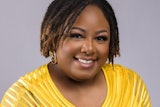With the 2024 election fresh on our minds, it is fair to say that Vice President Kamala Harris, a graduate of Howard University and outspoken advocate of Historically Black Colleges and Universities (HBCUs), brought renewed attention to HBCUs during both her time in office and the presidential campaign. VP Harris even chose to give her concession speech on the campus of her alma mater.
It was over 180 years ago that HBCUs were founded, at a time when Black Americans had little to no access to higher education. Still today, they are central to the education and empowerment of Black Americans—offering more than just a degree but also a legacy of opportunity and possibility. Dr. Patricia Green-Powell
Dr. Patricia Green-Powell
An early example of opportunity and possibility comes from one of the first college-educated Black men, Dr. James Monroe Gregory, who worked with the notable abolitionist, writer, orator and self-educated Frederick Douglass to push for social change. Together, the legacies of these two Black men reflected a blend of education and personal talent, respectively, which they combined their abilities to effectively advocate with the alliance of prominent Washington politicians and sympathizers.
This one example speaks volumes of what education can do for an individual—confidence, strategic thinking, a job, money, power, and respect. From the time the first institution, Cheyney University of Pennsylvania, was founded in 1837 to the numerous schools that followed, HBCUs have created spaces for Black intellectualism, creativity, and leadership.
They have generated leaders of the Civil Rights Movement, groundbreaking artists, scientists, entrepreneurs, and activists who shaped the Black experience and the fabric of American society. The significance of HBCUs is still relevant today because many undergraduates are first-generation college students, and these institutions are imperative in providing a safe space for students of color to learn, explore their identities, develop their passions, and become leaders by their own achievements.
Despite evidence of this rich history and cultural significance, HBCUs have often been sidelined in mainstream discussions about higher education. Today, they make up just 3% of the nation’s colleges and universities but enroll nearly 10% of all Black students, producing over 20% of all Black graduates in science, technology, engineering, and math (STEM) fields, along with nearly 25% of Black graduates who earn doctorates.
That said, VP Harris has been an influential and successful voice for HBCUs in the Biden Administration. Over the past few years, Howard University received millions for financial aid assistance, debt relief and infrastructure improvements. Tennessee State University received student debt relief for nearly 2,000 students, in addition to campus upgrades and enhanced technology improvements. North Carolina A&T State University received funds for research expansion and workforce training programs, as well as Morgan State University, and Claflin University, and Florida A&M University who received funds from the “Learning to Leading: the Next Generation of Diverse Food and Agriculture Professionals” NextGen program, to name a few. The influx of resources to these institutions has helped each HBCU to attract and retain students, build competitive academic programs, improve technology, and contribute to local and national economic growth. Note, however, the size and prominence of all these HBCUs is certainly significant.
There are 101 HBCUs in operation across the U.S. and not all are of this distinction. Yet, while 64 nonprofit and for-profit colleges closed between 2020 and 2023, exacerbated by the pandemic and long-term enrollment declines, only four of these closures were HBCUs. According to the Hechinger Report, HBCUs have struggled but often remain operational through mergers or significant restructuring rather than full closures.
So how can we honor our brave and tenacious ancestors who started these wonderful educational institutions that gave us a rich Black legacy? Of course, monetary support is always needed and genuinely welcome. It is easy for rich celebrities—VP Harris, Oprah, Spike Lee—to donate huge sums of money to swell endowments. Do not misunderstand; that is not to say any sum is not wanted or needed, as it all adds up, and even the smallest donation is genuinely appreciated. Dr. Adriel A. Hilton
Dr. Adriel A. Hilton
However, there are other ways of ensuring the sustainability of a local HBCU—through personal interaction—by donating your time and talent—which can be of equal worth to enrich these schools. As alumni or local community businessmen/women or entrepreneurs, offering mentoring and networking guidance and opportunities; volunteering to give guest lectures or workshops in your respective field; creating internship and job opportunities; being a public advocate and promoting your institution at events, or especially on social media, to raise awareness, are all valuable. These are the types of efforts that can impact and enhance the significance of an HBCU in your community.
Remember, there were brave men and women visionaries who started these institutions from the ground up, that included modest facilities and funding, relying heavily on community support, church donations, and contributions from philanthropic groups. They did the hard work; I think we owe it to them to secure the future and pride of our HBCUs.
HBCUs represent something that is at the core of American ideals: the belief that every person, regardless of background, should have the opportunity to reach their full potential, and HBCUs will continue to be a critical part of that journey—a future shaped by innovation, inclusion, and equity. Are you willing to step up and do your part to secure the future of Black excellence and tradition at our HBCUs?
Dr. Patricia Green-Powell is Professor of Educational Leadership at Florida A&M University.
Dr. Adriel A. Hilton is Director of Programs, Transitions, and Youth Success Planning for the Washington State Department of Children, Youth and Families.















